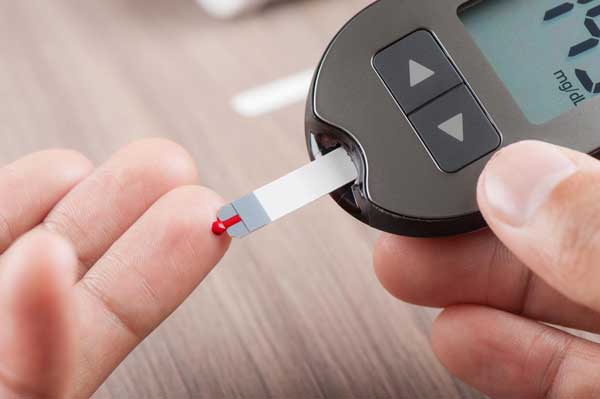Waking up with high blood sugar can be alarming and frustrating for those who are trying to manage their diabetes. It is important to understand why this happens and what steps can be taken to lower blood sugar levels. In this article, we will delve into the reasons why your morning fasting blood sugar is high, the process behind it, and what you can do to help control it.

Insulin Resistance and Type Two Diabetes
Type two diabetes is largely a problem of insulin resistance. In this type of diabetes, the body’s cells become less responsive to insulin, which is responsible for transporting glucose from the bloodstream into the cells. This leads to high levels of glucose in the bloodstream, which can cause various health problems. However, another feature of type two diabetes is the liver producing sugar overnight, which can lead to high blood sugar levels in the morning.
The Role of the Liver
The liver is responsible for producing glucose, which is the main source of energy for the body. When the body needs more glucose than what’s available in the bloodstream, the liver comes into play. It produces glucose and releases it into the bloodstream. This is where the problem occurs for those with type two diabetes. Their cells are unable to take in the sugar due to insulin resistance. As a result, the liver produces more sugar, leading to high blood sugar levels.
Gluconeogenesis
The process by which the liver produces glucose is called gluconeogenesis. It starts with the breakdown of non-carbohydrate compounds such as amino acids from proteins, lactate from muscles, and glycerol from fats. These compounds are then converted into glucose and released into the bloodstream. The main function of gluconeogenesis is to provide glucose to the brain and other tissues that need it.
When someone has type two diabetes and their cells can’t use glucose properly, even if there is enough insulin in the bloodstream, the glucose that the liver produces overnight cannot be used by the cells. It starts to accumulate in the blood, leading to high blood sugar levels.

Controlling High Morning Fasting Blood Sugar
There are both pharmacological and non-pharmacological measures that can help control high blood sugar levels. Medications such as metformin and insulin injections can be prescribed by a doctor to help lower blood sugar levels. However, there are also non-pharmacological measures that individuals can take to help lower their blood sugar levels, including:
- Maintaining a healthy diet Eating a balanced diet that is rich in vegetables, fruits, whole grains, and lean protein can help manage blood sugar levels. Avoiding sugary drinks, processed foods, and saturated fats is also recommended.
- Regular exercise Physical activity helps the body use insulin more effectively, which can help lower blood sugar levels. Aim for at least 150 minutes of moderate-intensity exercise per week.
- Monitor blood sugar levels Regularly monitoring your blood sugar levels can help you identify patterns and adjust your diet and exercise accordingly. This can also help you determine if your medication is working effectively.
- Get enough sleep Getting enough sleep is crucial for maintaining good health, including blood sugar levels. Aim for seven to eight hours of sleep per night.
Conclusion
High morning fasting blood sugar levels can be concerning, but understanding the reasons behind it can help individuals take steps to control it. Insulin resistance and the liver producing sugar overnight are the two primary reasons for high morning fasting blood sugar levels. Making lifestyle changes such as exercising regularly, maintaining a healthy weight, and eating a well-balanced diet can help improve insulin sensitivity and reduce liver glucose production. Additionally, monitoring blood sugar levels regularly, taking prescribed medications as directed, and consulting a healthcare provider for guidance can also help in managing high morning fasting blood sugar levels.
It is important to note that high morning fasting blood sugar levels may also be a sign of an underlying medical condition such as diabetes, thyroid disorders, or sleep apnea. Therefore, it is crucial to seek medical advice if lifestyle changes do not result in improvement in blood sugar levels.
